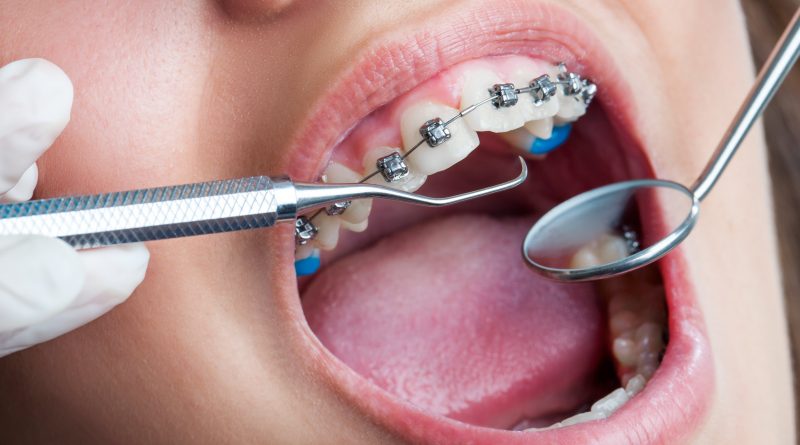Medication Side Effects
Many medications can cause bothersome oral side effects, such as dry mouth/xerostomia, altered metallic taste affecting the taste buds, swollen and tender gums leading to periodontitis or gingivitis, mouth ulcers/sores. Learn how to cope……..
By Dr. Deepti Sharma
Many medications for curing general health conditions and medical diseases can affect your oral health. In addition to prescribed and over-the-counter drugs, vitamins, minerals, and herbal supplements can also cause oral health issues that range from dry mouth to inflamed gums to taste alterations and bone loss.
Oral Health: Medication Side Effects
Some of the most common side effects from medications that affect oral health include:
• Dry mouth/xerostomia
• Abnormal bleeding
• Altered taste
• Inflammation, mouth sores, or discoloration of the soft tissues in your mouth
• Enlarged gums
• Cavities
• Teeth and gum color changes
• Bone loss
• Thrush, or an oral yeast infection
Medications That Can Cause Dry Mouth
More than 400 medications have the potential to cause dry mouth. Saliva cleans your mouth but if it’s not flowing normally and dry mouth develops, you’ll be more prone to gum infections and tooth decay.
The most common types of medications that cause dry mouth include:
• Antihistamines
• Decongestants
• High blood pressure medications (including diuretics, calcium channel blockers, and angiotensin-converting enzyme inhibitors)
• Antidepressants
• Sedatives
• Pain medications
• Parkinson’s disease medications
• Antacids
Treatment remedies for dry mouth
If dry mouth is severe as a result of your medication, you can ask your doctor to switch your medication to something else. If that isn’t recommended, here are some tips to help alleviate dry mouth symptoms:
• Ask your doctor or dentist about using an artificial saliva product.
• Sip water or any type of sugarless drink throughout the day.
• Skip or cut down on caffeinated beverages, alcohol, and tobacco because they contribute to a dry mouth.
• Drink water or a sugarless drink while eating to make swallowing and chewing easier.
• Suck on sugarless candy or gum to promote saliva production.
• Avoid salty and spicy foods, which can cause pain to an already dry mouth.
• Use a humidifier at night.
Medications That Can Cause Abnormal Bleeding
Aspirin and anticoagulants, also known as blood thinners, lessen the ability for blood to clot. While they’re helpful in preventing heart attacks and stroke, they can cause your gums to bleed, especially during oral surgery.
Tips for abnormal bleeding Be sure to let your dentist know that you are taking these drugs so that precautions can be taken to minimize bleeding. Also, be sure to use a soft tooth brush and gentle motions when brushing and flossing your teeth to lessen the bleeding.
Medications That Can Alter Taste
Certain drugs can leave a metallic or bitter taste affecting your taste buds in mouth. And some medications may simply change the taste of the things you eat. Such medications include:
• Cardiovascular drugs (some beta blockers and calcium channel blockers)
• Central nervous system stimulants
• Flagyl (metronidazole), an antibiotic drug
• Nicotine skin patches for smoking cessation
• Some respiratory inhalants
What to do about taste changes
If this side effect is intolerable, ask your doctor if your medication can be changed.
Medications That Can Cause Soft Tissue Reactions
You can develop inflammation, mouth sores/ulcers, or discoloration of the soft tissues in your mouth affecting lips,tongue,floor of the mouth, inner area of cheek when taking the following prescribed drugs:
• Blood pressure medications
• Immunosuppressive agents
• Oral contraceptives
• Certain chemotherapy medications
What to do about soft tissue reactionsLet your dentist know if you are taking any of these medications so he or she can recommend a special dental care regimen to reduce the discomfort.
Medications That Can Cause Gums to Enlarge
Enlarged gums, also known as gingival overgrowth,periodontitis,gingivitis, can occur when you take:
• Antiseizure medications (such as those for epilepsy)
• Immunosuppressant drugs (typically used after organ transplantations)
• Calcium channel blockers (for cardiovascular conditions)
• Tips on enlarged gums While taking these medications, you’ll need to take extra care when brushing and flossing. Ask your dentist for specific dental care instructions.
Medications That Can Increase the Risk of Cavities
Many medications, especially those given to children, contain sugar. Sugar is also found in antacid tablets, antifungal agents, cough drops, and many chewable tablets, such as vitamins. Too much sugar can lead to cavities.
How to cope up with sugar in medications
• If possible, take the medication in tablet form.
• Take the medications at mealtimes.
• Avoid taking the medication right before bed.
• Make sure you or your children brush with a fluoride toothpaste or chew sugarless gum after taking the medication.
• Seek regular preventive dental care.
Medications That Cause discoloration of Teeth and Gums
Certain drugs can change the color of your teeth or gums. For example, minocycline (which is used to treat acne) can cause an area of black pigmentation on your gums and a black or gray discoloration of your teeth. Chlorhexidine, a mouth rinse used to treat gum disease, can also stain your teeth.
How to take care of gum or teeth discoloration If a medication has discolored your teeth, ask your dentist about tooth-whitening procedures /bleaching & polishing after scaling that may help.
Medications That Can Cause Bone Loss
Use of corticosteroids, such as prednisone, and antiepileptic drugs, can lead to the loss of bone that supports your teeth. Bisphosphonates, drugs used to treat osteoporosis, can sometimes cause a rare condition called osteonecrosis of the jawbone, which results in destruction of the jawbone. Symptoms include painful, swollen gums or jaw, loose teeth, jaw numbness, a heavy feeling in the jaw, fluid in the gums and jaw, and exposed bone.
What to do about osteonecrosis Be sure to tell your dentist if you are taking a drug for osteoporosis. Your dentist may prescribe an antibiotic or nonsteroidal anti-inflammatory drug to slow your bone loss.
Medications That Can Cause Thrush
Thrush, also known as an oral yeast infection, is caused by a fungus (Candida) and appears as white lesions on the mouth and tongue. Taking antibiotics, steroids, or chemotherapy can cause thrush.
What to do about thrush: Your dentist may prescribe an antifungal mouthwash or lozenges to treat the infection. If these don’t work, stronger antifungal medications can be prescribed.
Behaviour-Altering Drugs affecting Oral Health
Behaviour-altering drugs, such as psychotropic drugs, can cause lethargy, fatigue, or memory impairment. If you are taking any of these type of medications, take steps to help you remember to brush and floss your teeth regularly — whether that means setting an alarm, leaving yourself a note, or some other reminder method. Never stop taking a psychotropic medication without first consulting your doctor. If a drug is causing bothersome oral health side effects, let your doctor know. In many cases, you may be able to take a different type of medication or make lifestyle changes that minimize the side effects. And, as always, take care of your mouth by regularly brushing and flossing your teeth, getting regular dental checkups, and treating any problems that arise.

About Dr. Deepti Sharma
Dr. Deepti Sharma is a Dental Surgeon, Root Canal Specialist, Implantologist and Smile Designer of Indian Origin. She did her Bachelor’s Degree in Dental Surgery from Baba Farid University of Health Sciences Faridkot ,Punjab. Afterwards she completed her P.G.D.F ( post graduate diploma in forensic science and related laws ) from Rashtrasant Tukdoji Maharaj Nagpur University.She has also successfully completed her Certification in Implants & Certification in 08 Medical Operations against WMD from National Civil Defence College Nagpur.
Working towards acknowledgement she has submitted her project report on Comparison between 5 commonly used method of human bite mark overlay production from the Dental Study Cast ,She has also done her paper presentation on The Use of Dental Study of the Enamel & Neonatal Line for revealing postnatal survival in skeletal remains of infants on National Conference on Forensic Science.
Currently she is operating her own Clinic as Dr .Sharma’s Dental Care located at CMPDI Road Shobhalok Building Jaripatka, Nagpur.& Since 2016 she is on Panel with Central Mining Planning Design Institute Reg 4 Nagpur.She is renowned social worker & currently chairwomen of SSD & SNA Social Welfare Foundation & runs charitable hours on Sunday 11 am- 2 pm at her own clinic for the welfare of humanity by imparting her medical services at affordable costs
Dr. Deepti Sharma is also associated with Vidharb Media Channel and has her regular program on Dental Talk Shows on Hello Doctor Episodes every week of the month. She is regular contributor for Double Helical, a leading national monthly health magazine. Recently she has been interviewed for Double Helical You Tube Channel as a successful Dental Surgeon.
(The author is Root Canal Specialist, Smile Designer, Implantologist, Dr, Sharma’s Dental Care, Nagpur)

